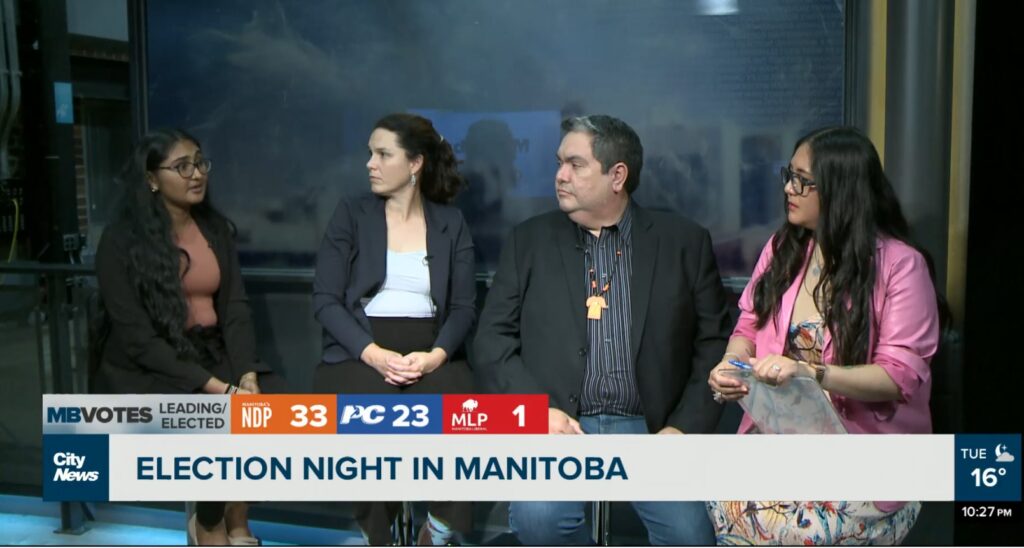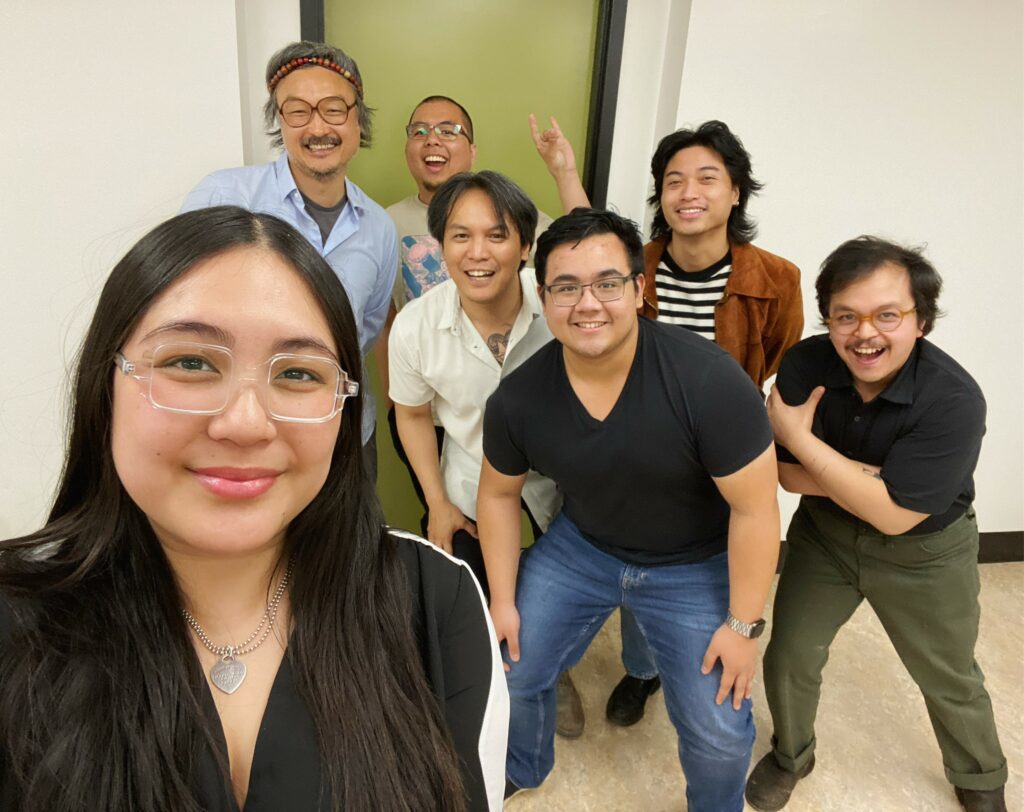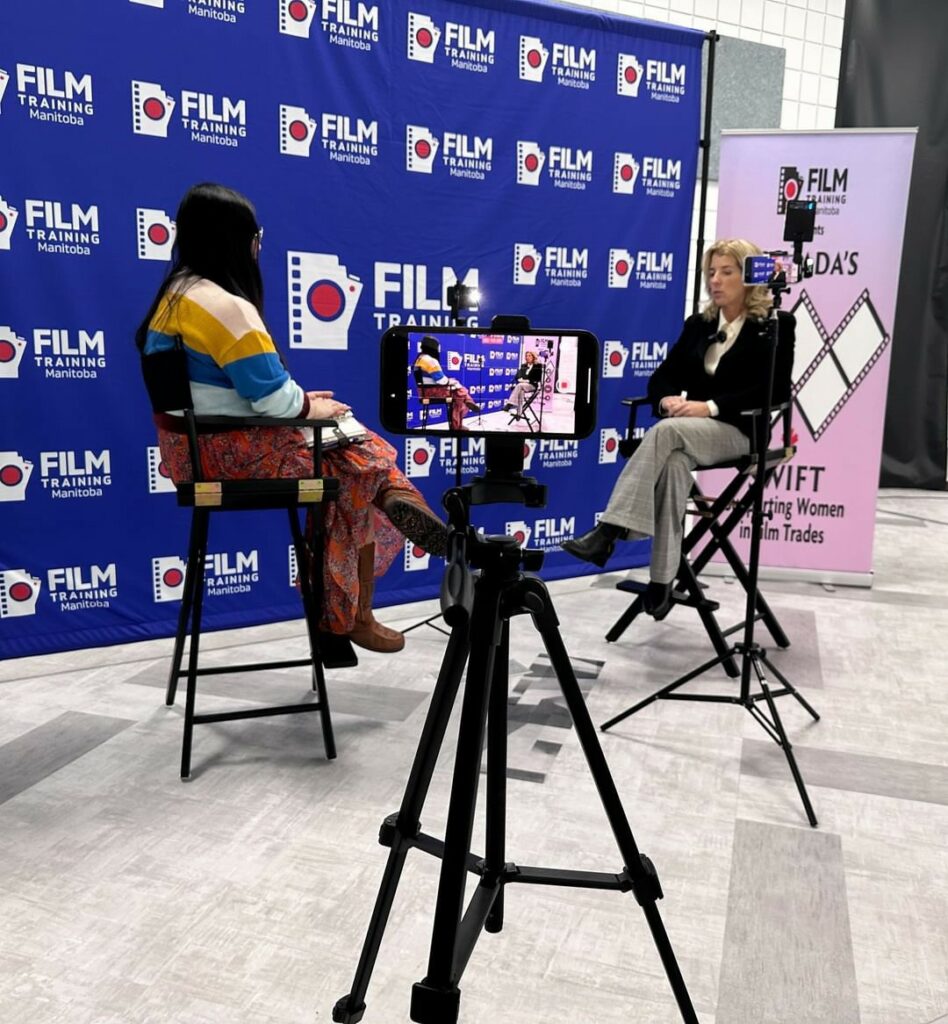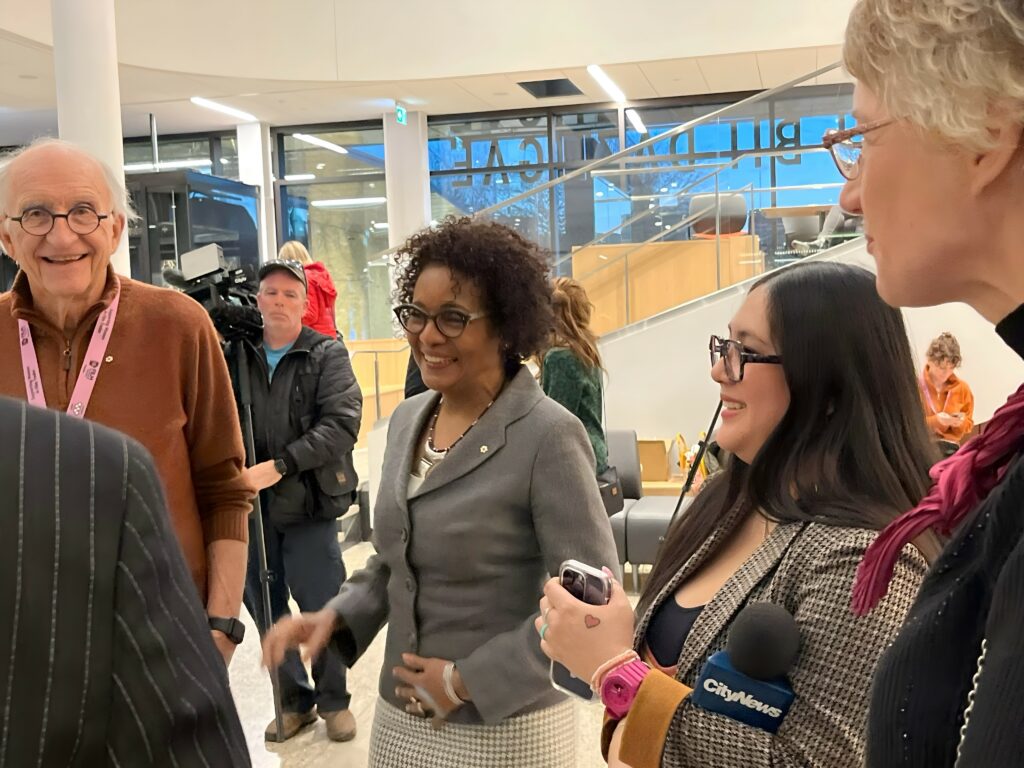
Joanne Roberts is a Filipina-Canadian journalist and filmmaker, currently working with CityNews. She previously worked at CBC Manitoba as a multimedia reporter and radio news host. Notably, she’s the host of the CBC series “Being Asian. Competing Truths” and director of the award-winning series “I Am” with CBC’s Creator Network.
As a filmmaker, Joanne’s work revolves around voices in the Filipino community. Her autobiographical film titled “Anak” won the emerging filmmaker’s pitch competition at the Gimli International Film Festival in 2020 and a spot on the Most Fascinating Manitobans list the same year.
When and how did you start in the media production industry?
Five years ago, I transitioned from my work as a music teacher into media. I started acting, doing small roles in independent movies, and eventually I realized the acting thing wasn’t going to happen for me – and I don’t think I wanted it to, either. In 2020 when so many artists were out of work, I realized I wanted to start sharing my own stories and taking autonomy for what I put out into the world. So that’s when I started venturing into directing and producing my own work. And I’d been writing since I was a child – like, fanfiction and short stories, but never actually sat down to write anything for anyone else to read. But I decided to take a chance on myself, my lived experiences, my ability to adapt and overcome. Eventually I found my voice. I competed at the Gimli International Film Festival’s pitch competition that year – and I won. And the rest is history?
What area of the film industry do you work in now and why?
I work in news! I have to be on TV nearly every day, and that presents its challenges (like figuring out what to wear, which is my favourite part to be honest…). It’s something that was never on my radar, but in my quest of trying to learn new things I stumbled on an internship program and fell in love with this type of storytelling. It’s sort of like documentary filmmaking, except instead of having weeks and months to find a story, film and put it together, I have to do all that in 9 hours. It’s the hardest thing I have ever done, but the most rewarding and so exhilarating every day.

What has been a substantial change in the industry since you started?
The news industry is going through so many shake-ups… We just got word of massive layoffs at different organizations so I feel like it’s a super unsteady and volatile environment to be in, in terms of career longevity and safety. But what’s really changing for me is how traditional news storytelling seems to be changing. It has to. With shake-ups like Meta not allowing news on their platforms for Canadians, I think journalists have to adapt to the changing environment and find the best way to get their stories out there – other than asking people to just visit the news site. I’m trying with social media, but honestly still figuring stuff out as I go.
If you could give yourself advice today to yourself in the past, what would it be?
I would tell myself that my experiences, my opinions, my instincts – all of those are valid and deserve to be heard. I would tell myself that if you don’t see a tangible representation of your dream, then go out and be that tangible representation for the next little girl looking to see a Filipina reporter that looks like her on TV.

What is advice you would give to someone starting off in the media production industry?
Don’t ever lose the drive of wanting to grow and learn. I think creativity is so important, and once you’re in a place where you’re comfortable it’s time to seek out new adventures and new people you can learn from. That’s how I found myself in news, which is the ultimate learning experience every day. It’s the only way to be your best.
But if someone is looking for something more concrete, I would say – know your worth and don’t settle for anything. Too many of us gig workers put in our blood, sweat and tears for projects that we see nothing back from. Get paid what you’re worth. Exposure only goes so far. I never put anything into production unless I’m getting paid in a way that I am satisfied with. Professionals you want to work for will understand that, too.
Why is learning and training important?
How are you going to get better if you don’t constantly learn? And like, I’m not talking about making leaps and bounds every single day. Sometimes (…lots of times) I’m not satisfied with the story I’ve put out there for one reason or another. If it’s something I can fix, I make that adjustment. If it’s something I don’t know how to fix, I’ll go to someone who can help me figure out how I can. Because my role now as a video journalist makes me wear so many different hats – host, writer, editor, shooter… My learning curve has not been steep at all. But as long as it’s there, that’s all I care about. The media landscape is always evolving and changing and as artists we have to keep up with the times.
Also there isn’t enough to be said about connections and how important they are in the industry. Make them, learn, show people your work ethic, and your hard work will pay off.

What are some of the films, TV series or even books that have inspired you? How about anything new you’ve been into?
It has nothing to do with my work, but I absolutely LOVE the new Netflix series, The Brothers Sun. It’s such a great series, and I am gutted it was not renewed for a second season. I find the writing to be so elevated, the characters so well-rounded and you really feel for them. I’ve also been taking notes on their cinematography and editing. While starting a TV series isn’t coming up for me because I’m busy with daily news stories, I find I can still find inspiration with more creative uses of framing I might be able to use for a story. When and where to change shots/angles has always been a challenge for me and I like to see how others deal with it. And honestly, it’s really fun noticing things that people who don’t work in TV, notice.
Is there something about you or an interesting past experience that you’d like to share with your colleagues?
YES. All my Francophones out there, the ones who went through French Immersion and are super iffy about your abilities… PLEASE give French productions a try. The swan song of my acting career was playing an up-and-coming rapper in a French television show called “Edgar”, and it was THE best time on set. I got to flex my linguistic skills and finally use the language I had been learning for over a decade. We have so many people in Manitoba who don’t use their French, and I think it’s high time we hear all those different accents and see all those different faces come out of hiding. Sometimes, there are things that can only be expressed in French. Alors soyez pas effrayé, mes amis.

Is there someone within the film industry you would like to work with and why?
Alvin Catacutan. I recently did an interview with him, he’s a martial artist from Winnipeg who is now in LA working in the entertainment industry and training stunt performers and actors. Like, he worked with the lead actors in Dune 2 training them in martial arts. Dune 2 just became the top-rated movie OF ALL TIME, surpassing greats like The Shawshank Redemption (which is also amazing). How surreal is that? For someone who is from my hometown, who is of my culture, to have such a major role in a Hollywood blockbuster. I think it’s so cool to know that Filipino martial arts, called Kali, is making such an impact in Hollywood and a small part of it is from someone who walked the same streets as I did as a child. I’ve actually been training with him online over the last few weeks and feel like a lethal weapon. Not seriously, but, it is really cool how fluid the movements are and hearing the history behind the craft. I am so excited to take his class when he comes back to Winnipeg (and probably do another news story, too).
Where do you see yourself in ten years from now?
Ten years from now I’m hoping to still be telling stories. Whether that’s in news or going back to long-form documentaries… As long as I can keep writing and connecting with people, I’ll be so happy.
FTM is a non-for-profit charity and member of the Province of Manitoba’s sector council program (through the Department of Economic Development and Jobs). FTM conducts workforce development and training to build a highly skilled and adaptable film industry to support the activities of Manitoba production companies. FTM collaborates with members of the film and television industry to identify the training needs within the community.
